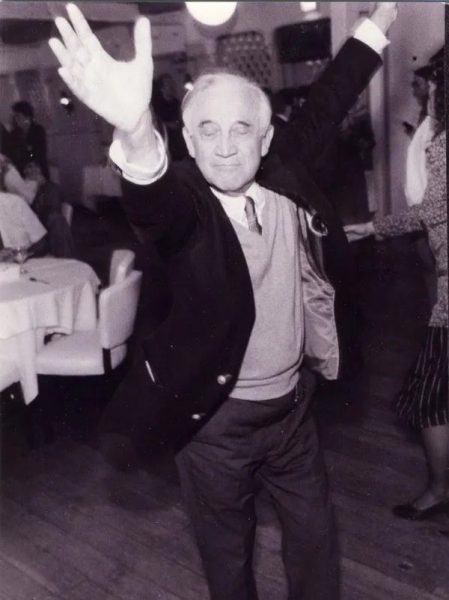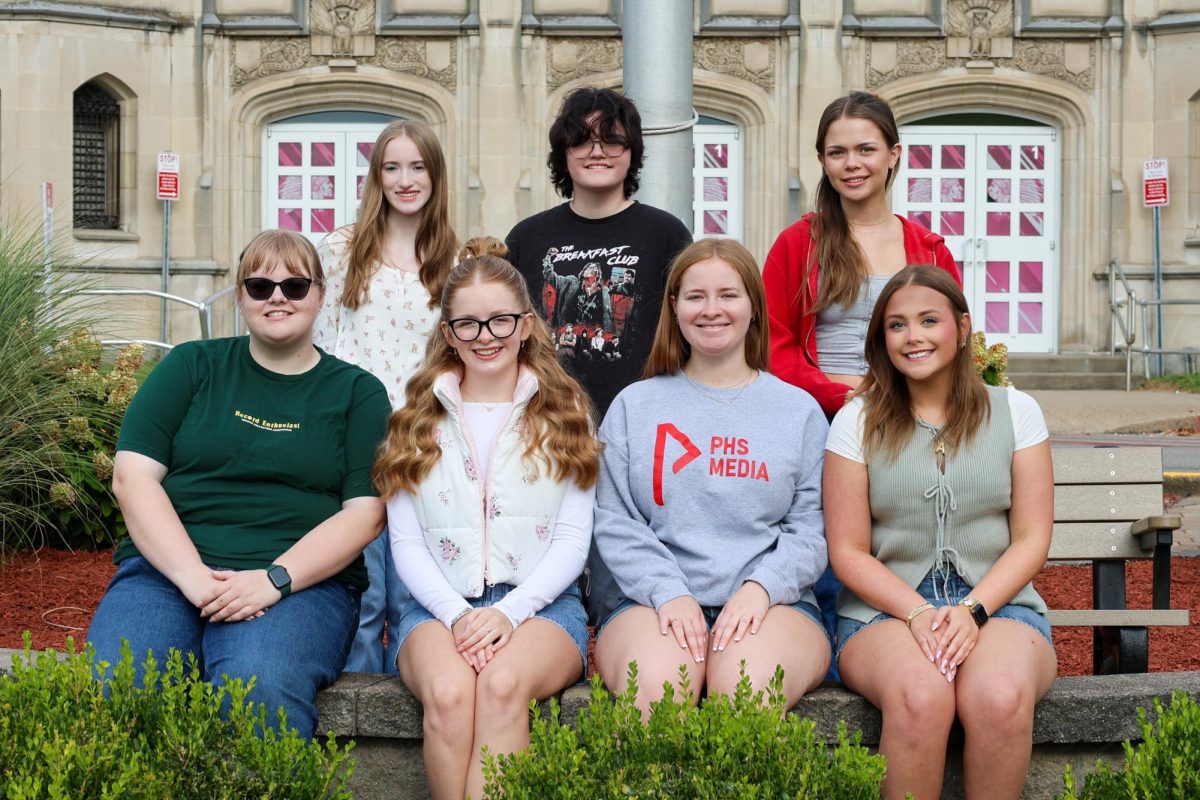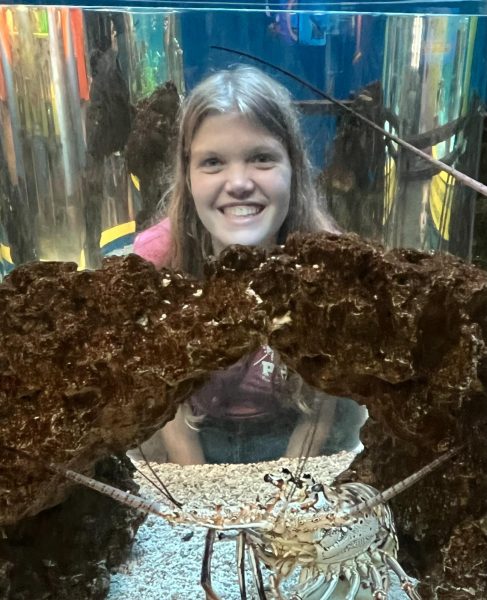First of all, I want to thank my English teacher, Mary Blaker, for having her AP Literature students read Mitch Albom’s “Tuesdays with Morrie.” The experience I’ve gained reading this is unlike anything I’ve had before, and that’s coming from someone who loves reading and has read countless incredibly good books with powerful messages. I believe that everyone should let themselves spend time with this book, whether avid readers or not. “Tuesdays with Morrie” is a first-person recounting of Albom’s true experience with his former college professor, Morrie Schwartz, at the end of Schwartz’s life. It’s written simply and is easy for anyone to follow, but the message it holds is incredibly complex. Readers know that Schwartz will die by the end of the book. It is clearly stated in the first chapter, “The Curriculum,” which creatively introduces the book as if the time Albom spent with Schwartz was a college class covering “The Meaning of Life” where “kissing him goodbye earned you extra credit” and “a funeral was held in lieu of graduation.” It’s clear that this book will have a sad ending from the beginning, but it’s not about Schwartz’s passing. What matters most about this book is what happens in the middle.
Albom was a student at Brandeis University, studying to follow his passion and become a pianist. Schwartz, a sociology professor at the university, became Albom’s favorite teacher on day one, when the only reason he was taking sociology was because he wanted an easy A. All four years he was in college, Albom went out of his way to take every class Schwartz had, graduating with enough credits in sociology that he could earn a bachelor’s degree in it. Albom spent most Tuesdays with Schwartz, when he had the majority of Schwartz’s classes, ate lunch with him, took walks around campus with him and worked with him during his senior year on an honors thesis about how football has become like a religion in America. At graduation, Albom gave Schwartz a briefcase engraved with Schwartz’s initials and promised that he’d visit his professor again soon.
Albom’s plans to see Schwartz never went through, as he got caught up with life. In adulthood, Albom became a successful sports journalist, his dreams of being a pianist fading away. He worked relentlessly, always striving to get more stories out, earn more money and buy the next newest, nicest thing. He was stuck in the fast-paced culture that’s forced on us in the United States, and he forgot about his promise to visit Schwartz for 15 years. In fact, the only reason that Albom ever reconnected with his old professor was because, just by chance, he happened to come across a Nightline interview entitled “Who is Morrie Schwartz?” Albom is aware, as he mentions throughout the book, that he never would’ve gone through with his promise to visit Schwartz again if he hadn’t found the interview, and if there hadn’t been a perfectly-timed newspaper strike that left him without work and, more importantly, without excuses to pass up the opportunity of going to his professor for their final class together.
Albom and Schwartz met once a week, only on Tuesdays, for 14 weeks. In the book, Albom recounts each day spent with Schwartz in the form of a chapter. “The first Tuesday: we talk about the world; the second Tuesday: we talk about feeling sorry for yourself; the third Tuesday: we talk about regrets; the fourth Tuesday: we talk about death; the fifth Tuesday: we talk about family; the sixth Tuesday: we talk about emotions; the seventh Tuesday: we talk about the fear of aging; the eighth Tuesday: we talk about money; the ninth Tuesday:

we talk about how love goes on; the 10th Tuesday: we talk about marriage; the 11th Tuesday: we talk about our culture; the 12th Tuesday: we talk about forgiveness; the 13th Tuesday: we talk about the perfect day; the 14th Tuesday: we say goodbye.”
“Tuesdays with Morrie” is a book that makes you think. As I read it, ingesting all the aphorisms and points that Schwartz makes, I constantly agreed with what I was reading. The thoughts I always had when I picked up the book were, “I definitely agree with that.” Then, as I kept reading, my thoughts became, “I should definitely start doing that.” Finally, my thoughts would end as, “why don’t I do that?”
Sure, I can always make the argument that I understand Schwartz’s points, that I follow his recommendations of how to look at the world, myself, regrets, death, family, emotions, aging, money, love, marriage, culture and forgiveness. I can argue that I understand why Schwartz’s perfect day is so simple, so ordinary, and that I can say good-bye like he knew how. I can argue, and then I can realize that’s me being self-absorbed, unlike Schwartz was. It’s me telling myself, it’s okay to do wrong because I can pretend I do more right than other people. That’s a habit I need to break. I volunteer, but I get so caught up in responsibilities that I usually only do it for hours that are required by my organizations to earn cords at graduation, even though I know they will not satisfy me like seeing real joy on the face of someone I helped. I spend time with my friends, subconsciously praising myself for giving them time to talk about themselves and their problems, rewarding myself by switching subjects like I didn’t even listen, and making the conversation about me. I visit with my family, but I often have excuses to avoid them. I’ll be too busy with schoolwork, there won’t be enough gas in my truck to easily make a round trip to my grandparents’, or I’ll simply feel too grumpy, just to name a few reasons I don’t spend time with the people I love. Yet, I also know that Schwartz would encourage me to forgive myself for not volunteering more, involving myself with my friends’ lives more sympathetically, or seeing my family often enough. Then, he’d tell me to make that forgiveness count, to volunteer, be a friend and make sure my family knows I love them.
This is a book that inspires readers to be better, to love others and to love ourselves. It’s not a difficult read, and it’s more important now than ever before. We live in a culture that encourages us to be selfish, to think our time is more valuable than another human being and to judge and hate before we praise and love. This book encourages readers to break that cycle and make their own culture, and a strong start is to read “Tuesdays with Morrie.”
I give “Tuesdays with Morrie” a 10/10.










